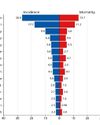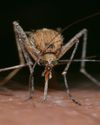In many cases the industrious processes of man have left behind contaminants in the soil. These contaminants pose a significant threat to the health of not just humans but to all natural life in the surrounding environment.

This problem is made worse when the contaminants enter the food chain or the underlying water table where they spread and become hard to manage. The most common contaminants present in the soil are; heavy metals, industrial chemicals, pesticides and crude oil all of which have been shown to be toxic to wildlife and humans. There have been substantial changes by governments and industries to limit and even remove the need for these harsh chemicals (most notably the ban on polychlorinated biphenyls), however much of the damage has already been done as so emphasis is on the removal of these toxins. The traditional methods for removing contaminants are based around man-made technologies and processes to either degrade or extract the toxins in the soil. In the past methods such as soil removal, soil oxidation and land fill have been used to decontaminate sites. These methods are; labor intensive, costly and in many cases they can be relatively damaging to the environment. This has caused the social and political push towards cleaner and environmentally sustainable methods. Plants and trees have the natural ability to degrade and absorb metals and compounds from the soil, it is in fact the way in which they obtain much of their essential nutrients. This capability can be exploited and utilised to extend to contaminants, and was conceptualised by Dr. IlyaRaskin as “Phytoremeditaion”
この記事は Scientific India の March-April 2019 版に掲載されています。
7 日間の Magzter GOLD 無料トライアルを開始して、何千もの厳選されたプレミアム ストーリー、9,000 以上の雑誌や新聞にアクセスしてください。
すでに購読者です ? サインイン
この記事は Scientific India の March-April 2019 版に掲載されています。
7 日間の Magzter GOLD 無料トライアルを開始して、何千もの厳選されたプレミアム ストーリー、9,000 以上の雑誌や新聞にアクセスしてください。
すでに購読者です? サインイン

Building world's 1st pyramid
In a preprint study published this summer, researchers proposed that ancient Egyptians built the world's first pyramid the 4,700-year-old Step Pyramid of Djoser, which sits on Egypt's Saqqara plateau using a \"modern hydraulic system\" powered by a long-gone branch of the Nile River.

Climate change arms the world, ovarian cancer pulls the trigger.It's time we disarm them both
Climate change, driven by human activities, leads to environmental changes such as rising temperatures, altered weather patterns, and increased pollution.

Climate Change Added 18 mph to Hurricane Wind Speeds over Past 5 Years
High ocean temperatures caused by global warming boosted maximum intensities for most storms between 2019 and 2023, as well as for every 2024 hurricane.

How Indian Vulture Decline Led to 500,000 Deaths in 5 Years
Once a common sight across India, vultures were abundant scavengers, often seen circling landfills in search of carcasses.

Understanding Monkeypox: Insights and Implications
Monkeypox, a viral zoonotic disease, has gained significant attention in recent years due to its re-emergence and sporadic outbreaks globally.

AI predicts that most of the world will see temperatures rise to 3°C much faster than previously expected
Three leading climate scientists have combined insights from 10 global climate models and, with the help of artificial intelligence (AI), conclude that regional warming thresholds are likely to be reached faster than previously estimated.

Infrared Radiation: A New Player In Mosquito Host-Seeking
The sound of mosquitoes is all around us when the sun sets and the air gets warm and sweltering.

Fish Oil May Benefit to Cure Alzheimer's, disorder: new findings
The benefits of fish and fish oil consumption are well-known in medical science as fish is considered a precious food resource that provides sufficient nutrition to humans.

A new class of antivirals could help prevent future pandemics
The arrival of Paxlovid in December 2021 marked another turning point in the COVID-19 pandemic an effective antiviral that has since successfully treated millions.

Turning carbon emissions into methane fuel
Chemists have developed a novel way to capture and convert carbon dioxide into methane, suggesting that future gas emissions could be converted into an alternative fuel using electricity from renewable sources. Carbon dioxide (CO2) is a greenhouse gas that accounts for a large part of Earth's warming climate, and is produced by power plants, factories and various forms of transportation.